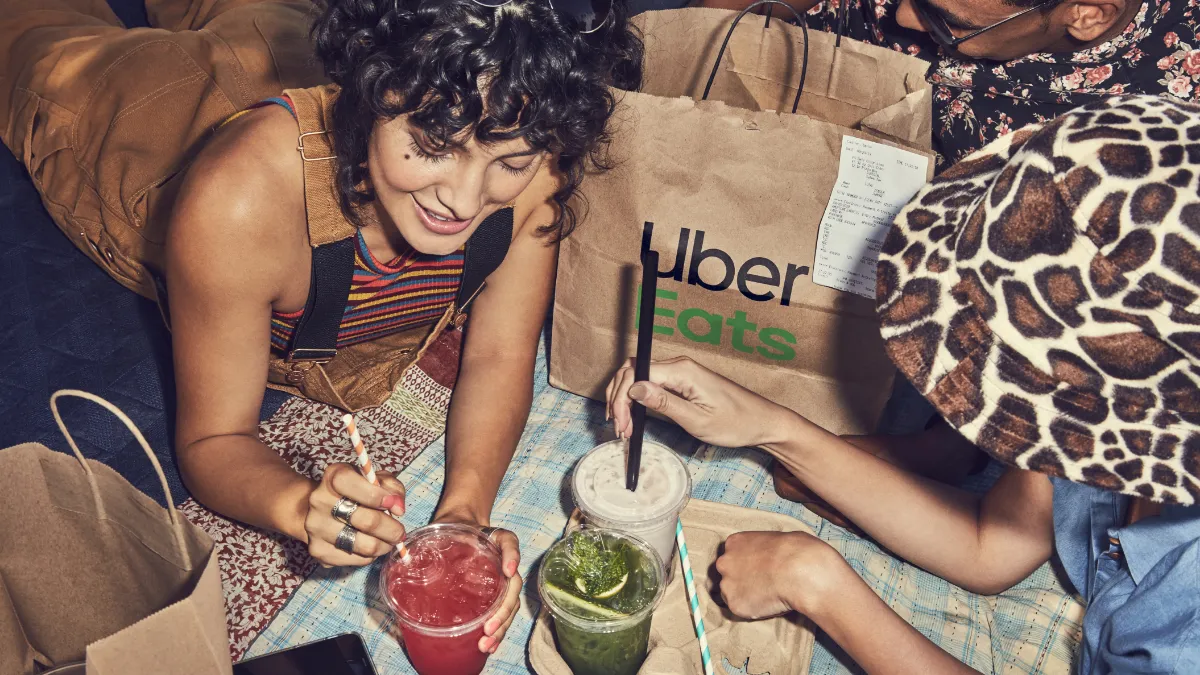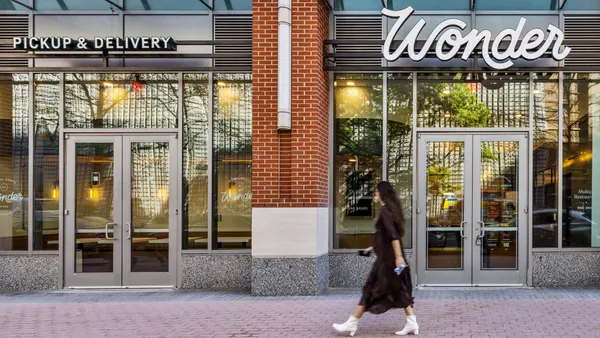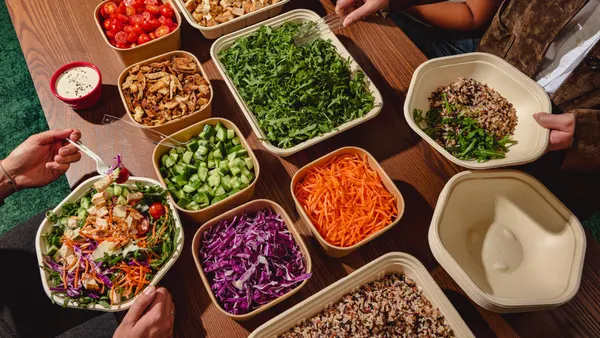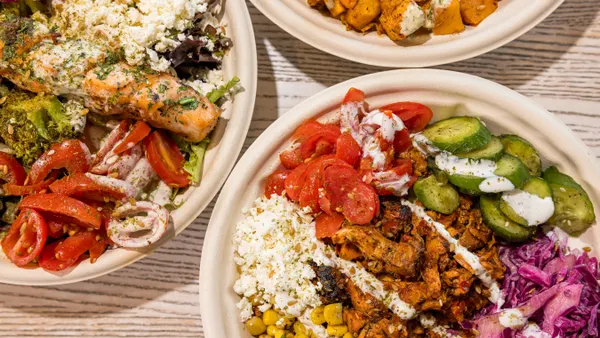Dive Brief:
- Attorneys general from Washington, D.C., and Pennsylvania said Tuesday they have collaborated with Uber Eats to provide better disclosures on the differences between pricing on in-app orders and purchases made directly at a restaurant, according to a press release.
- At the request of the attorneys general, Uber Eats has added another disclosure on its app and website that prices may be higher compared to at restaurants. The disclosure is displayed before a customer processes an order and is reviewing subtotal, fees, tax and total order cost.
- This latest request comes as attorneys general across the U.S. have been homing in on food delivery providers. Earlier this year, Arizona's attorney general reached agreements with Uber Eats, Postmates and DoorDash over accusations of discrimination related to waiving fees for Black-owned businesses in 2020. D.C.'s attorney general also settled with DoorDash in November over its former tipping model.
Dive Insight:
With consumer demand for food delivery up since the start of the pandemic, local governments have been taking aim at third-party aggregators' policies, from requiring temporary commission caps to considering laws that create greater fee transparency.
"As more and more consumers use apps like Uber Eats, it's critical that these companies are transparent about their pricing and the fact that getting food directly from a restaurant is often cheaper," Attorney General Karl A. Racine said in the press release."We strongly encourage other delivery apps to follow in Uber Eats’ footsteps. Those that do not risk investigation and scrutiny by our offices. Consumers deserve clear information so they can make informed decisions that work best for them."
Price differentiation isn't new. Restaurants often charge more on delivery marketplaces to cover the costs associated with delivery, which can be as high as 30% per order. El Pollo Loco, for example, has said it charges 15% to 20% more for items on aggregators' sites. Chipotle said earlier this year it has increased its menu prices for delivery, which makes up a quarter of its business, an average of 13%.
"Merchants set their own prices for items listed on Uber Eats. We think it's important to provide this flexibility to our merchant partners, especially during the recovery of local commerce," an Uber spokesperson said in an email to Restaurant Dive. "Occasionally, prices set by restaurants and stores for orders on Uber Eats differ from those used in-store, which is communicated in our app, website, and user terms. Working cooperatively with the State Attorney Generals' offices in Washington DC and Pennsylvania, we have included an additional disclosure on the Uber Eats website and app, and hope it provides additional clarity to consumers."
Uber said the difference in prices is already disclosed in several places on Uber Eats' app and website, including its terms and conditions and other legal disclosures. Following feedback from U.S. restaurant owners and operators, the company also recently revised its standard merchant contract to make it clearer restaurants can price their items differently on the platform versus in-store.
Local governments are also discussing regulation to address fee and price transparency. California is considering a bill that would require third-party delivery companies to provide an itemized cost breakdown of each transaction to both customers and restaurants. It would prohibit food delivery companies from charging higher prices for food than what the restaurant charges.
Creating greater transparency is in line with the policy framework developed by the National Restaurant Association and the top four delivery providers in December. The policies, which are meant to help guide lawmakers, include transparency over fees for restaurants.
Uber Eats added price disclosures on order summary pages in D.C. and Pennsylvania following requests by local attorneys general.













